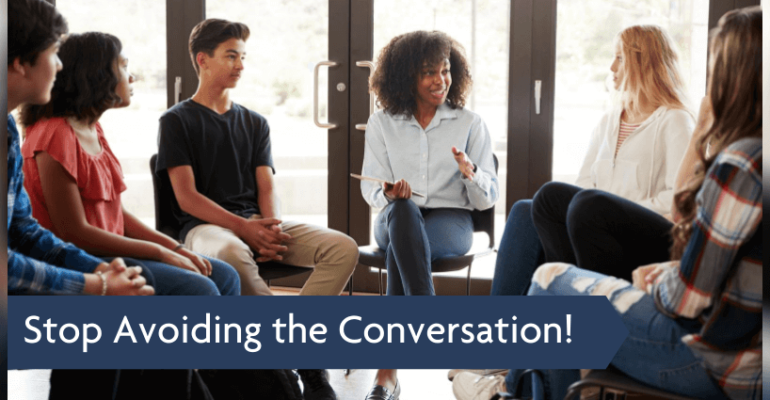Stop Avoiding the Conversation!

Stop Avoiding the Conversation!
Through this article, I would like to stress the importance of having the needed conversations in your workplaces and not avoiding them. I have spent a significant part of this year facilitating conversations for relationships, teams, and groups.
Whether it’s resolving a conflict between people, assessing and diagnosing organisational challenges, creating buy-in to change initiatives, or co-creating the shared vision for leadership teams, one issue that keeps coming up is the impact of avoided conversations.
This year alone, I have facilitated over a hundred conversations. And, I can confidently say that the level of conflict in each team can be linked to the level of openness, transparency, and trust in their relationship.
Oftentimes, small issues that have been brushed under the carpet build up to levels that are close to explosion.
From COVID-19 related business challenges to Black Lives Matter to threats of redundancy, it is clear that most relationships need constructive conversations. There is a hindrance to moving forward together where issues are not being addressed.
It is also clear that organisations that have equipped their people with strong communication and relationship skills; those that have built strong feedback cultures are better able to navigate these challenging times. Their people are better able to challenge the status quo, get creative in these ambiguous times, influence one another and collaborate better – all without fear of damaging their relationship.
So, I have six tips to help you build the confidence and courage to have those conversations that you know that you need to be having in your workplaces.
6 Success Factors for Constructive Conversations
- Prepare the Right Conditions: if there is someone that you want to have a conversation with, and it’s a difficult one, ensure that you create the right conditions for that conversation to take place. Are you in the right place? Is it the right time? And, is that person open to and ready for the conversation you’re about to have?
- Be Human: be vulnerable, be empathetic and from the start, be clear on what you hope to get out of the conversation. Make sure that the person knows your intention so that there isn’t any room for making up what the conversation is about or anxieties about where the conversation is leading to. Giving people that certainty helps create the safety for the conversation that you’re about to have. As an example, a fellow board member reached out to me a couple of months ago after I posted the first video I shared about Black Lives Matter. It was clear that she was anxious about engaging me in conversation on this matter and her initial words were, “ I hope that if my words are perhaps clumsy or wrong, that you know they come from my heart”. That was such a beautiful way for us to kick off what turned into a long conversation that left us both feeling much better connected.
- Check Yourself: be aware of your own judgments and plan to put them aside as you go into difficult conversations. Go in with deep curiosity, ask more questions, listen more, and be prepared to visit the other person’s perspective to get an understanding of where they’re coming from.
- Feedback on Impact, not Intention: If you’re providing feedback on a negative experience, communicate the impact on you, not the person’s intentions. More often than not, you will find that their own intentions have not matched their impact.
- What are you asking for? Be clear on what needs to change and build in accountability: how would you know when things are different? What would things look like then?
- Don’t be a Superhero: where the conversation is too difficult for you to have, please reach out and ask for support – either on how to have the conversation constructively or to request that someone facilitates the conversation for you.
Not having the conversation is not an option. Whatever you do, keep talking, keep listening to one another, and stay in relationship with one another.
We are in difficult and unique times, and I strongly believe that if we continue to stay in relationship; if we stay human and bring empathy into our relationships, and listen more to one another, we will come out of these times stronger and more united than we’ve ever been before.
Keep up the good work and please continue to take care of yourselves.
To find out about our Constructive Conversations workshops or for help with facilitating conversations on tough topics, get in touch via a private message or through https://obijames.com/contact/












